This is Edith Cavell.
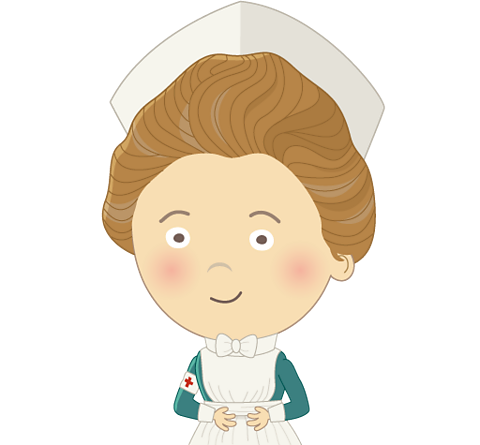
- Like Florence Nightingale, she was a trained nurse who worked during wartime.
- Florence worked during the Crimean War. Edith worked during World War One which began in 1914.
- She treated wounded soldiers from many countries, saving many lives.
- In 1915 she was shot by the German army as a traitor and a spy.

Watch: Life of Edith Cavell
Edith Cavell. Patriotism is not enough. Edith was born in 1865. Her father was a vicar and taught her how important it was to help people.
When she was older, she moved to Belgium to become a governess and later travelled to Austria to find out about helping the sick.
She returned home to look after her ill father and decided to train as a nurse.
Later, she returned to Belgium and pioneered the training of nurses.
In 1914, whilst Edith was on holiday the Germans took control of Belgium.
She decided to return there as she felt her help was needed more than ever.
Edith nursed the soldiers at a Red Cross Hospital. It didn’t matter to her which country they came from.
She sheltered Allied soldiers in basement hideouts and helped them escape from the Germans into neutral Holland. The Germans found out about this and arrested Edith.
Her punishment was death. Many people tried to get her released, but they could not help.
The night before her execution, she told her chaplain that it was more important to care for everyone rather than be patriotic.
She was shot dead by a German firing squad on the twelfth of October 1915.
Edith is remembered for caring for soldiers no matter which side they fought for.
What did Edith Cavell do?
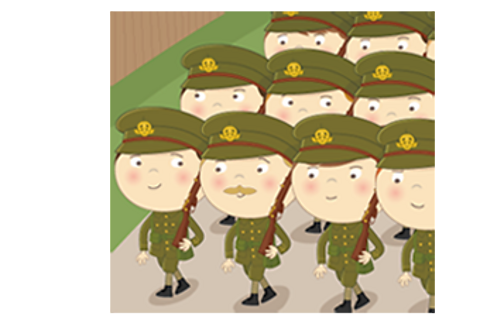
- Edith went to Belgium in 1907. She trained nurses for hospitals, schools and nurseries.
- In 1914, Edith was in Belgium when the German army invaded at the start of World War One.
- Edith looked after injured British and French soldiers.
- She secretly took 200 soldiers out of Belgium. This broke the law.

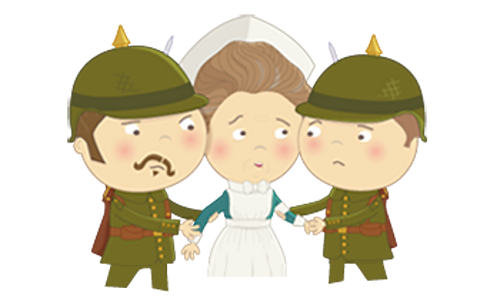
- When she was found out, she was arrested by the Germans.
- She spent ten weeks in prison.
- The British Government could not do anything to stop her execution.
- Some people arrested with Edith were let off, but Edith was shot on 12 October 1915.
Timeline of Edith Cavell's life
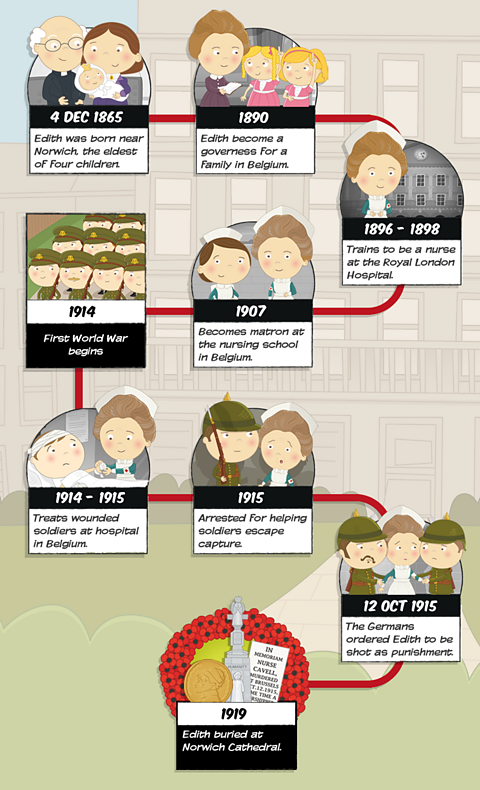
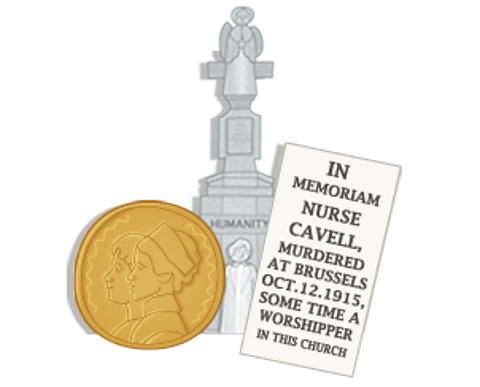
Did you know?
Edith Cavell was a very religious woman.
She did not wish to die for any country. The night before her execution, she said, "I must have no hatred or bitterness towards anyone."
There are statues remembering her all around the world.
Films and songs have been written about her.

Activity: Quiz - Edith Cavell
BBC Bitesize newsletter. External Link
Sign up to our BBC Bitesize newsletter to receive monthly news, stories and updates on latest Bitesize content.
